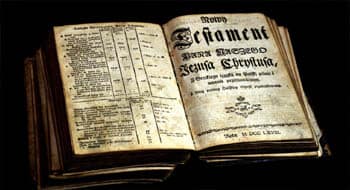Description
Curriculum
Instructor
The Bible may be divided into eight basic sections: four for the Old Testament and four for the New, but it should be noted that in each of these, Christ is the hope and underlying theme of all the books of the Bible.
Curriculum
- 6 Sections
- 18 Lessons
- 10 Weeks
Expand all sectionsCollapse all sections
- COMPARING THE OLD AND NEW TESTAMENTSThe Bible may be divided into eight basic sections: four for the Old Testament and four for the New, but it should be noted that in each of these, Christ is the hope and underlying theme of all the books of the Bible.1
- THE LAW: THE FIRST FIVE BOOKSThe first five books of the Bible are sometimes called the Pentateuch which means “five books.” They are also known as the books of the law because they contain the laws and instruction given by the Lord through Moses to the people of Israel. These books were written by Moses, except for the last portion of Deuteronomy because it tells about the death of Moses.2
- THE HISTORICAL BOOKSAs previously mentioned, the Old Testament can be divided into four basic sections with each providing a specific focus with regard to the person to Christ. With Joshua through Esther, we come to the second group of twelve books that deals with the history of the nation of Israel.5
- THE POETICAL BOOKSThe previous survey of the first seventeen books (Law and History), Genesis through Nehemiah, covered the whole history of the Old Testament. All the remaining books, Poetical and Prophetical, fit somewhere into the history of those seventeen books.3
- THE MAJOR PROPHETSThe first division of the Old Testament was known as the Law with the second being called the Former Prophets, but these included four books which have already been outlined—Joshua, Judges, Samuel, and Kings. Though these books deal with the history of Israel, they were composed from a prophetic viewpoint and possibly even the authors themselves may have been prophets by profession.3
- THE MINOR PROPHETSThe common title for these twelve books of the English Bible is “minor prophets.” This title originated in Augustine’s time (late fourth century A.D.), but they are minor only in that they are each much shorter than the prophecies of Isaiah, Jeremiah, and Ezekiel (called “major prophets”). In Old and New Testament times, the Old Testament was called “The Law and the Prophets.4



